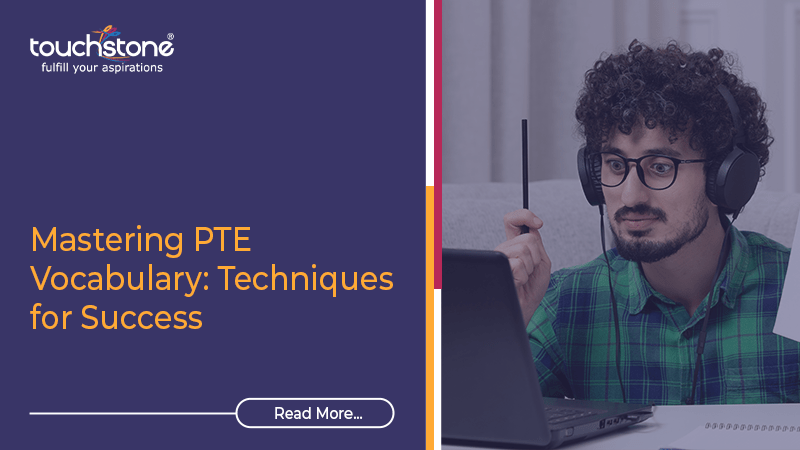As a leading PTE education provider, Touchstone understands the important role of vocabulary mastery in achieving success in English proficiency exams such as the Pearson Test of English (PTE). A robust vocabulary not only enhances communication skills but also plays a crucial role in securing high scores in various sections of the PTE exam. In this blog, we will delve into effective techniques and strategies to help test-takers expand their vocabulary and confidently clear the PTE exam.
Why Vocabulary Matters in the PTE Exam:
Before delving into specific techniques, it is crucial to understand the significance of vocabulary in the PTE exam. A rich vocabulary is essential for understanding reading passages, expressing ideas cohesively in writing tasks, and articulating responses fluently in speaking tasks. Moreover, a strong vocabulary empowers test-takers to discern subtle nuances, identify synonyms and antonyms, and navigate complex language structures adeptly.
Techniques for Mastering PTE Vocabulary:
1. Word Lists and Flashcards: Start by compiling word lists based on PTE vocabulary resources or relevant academic materials. Organize words into categories such as synonyms, antonyms, collocations, and academic vocabulary. Utilize flashcards or digital apps to review and expand your vocabulary regularly, focusing on retention and recall.
2. Contextual Learning: Contextual learning involves understanding words in the context of sentences, paragraphs, or passages. Encourage test-takers to read extensively across a variety of genres, paying attention to how words are used in different contexts. Engage actively with texts by highlighting unfamiliar words, guessing meanings from context, and looking up definitions in a dictionary.
3. Word Formation and Derivatives: Teach test-takers to recognize word families and derivatives to expand their vocabulary rapidly. Explore common prefixes, suffixes, and root words to understand the meaning of unfamiliar vocabulary.








